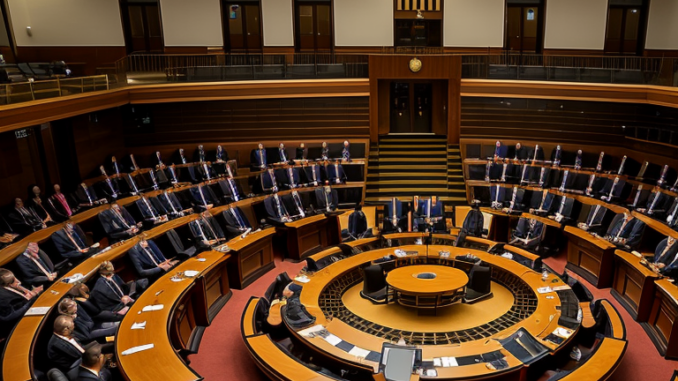
Australian lawmakers have recently rejected Senator Andrew Bragg’s proposed cryptocurrency bill, indicating the need for more changes and clarification regarding regulatory measures. The bill, set to introduce legislation in early 2024, faced dissent from multiple senators who raised concerns about including nonfungible tokens (NFTs) and specific asset-based tokens in the definition of regulated digital assets.
The Australian Senate Committee on Economics Legislation, responsible for providing feedback on the cryptocurrency bill, emphasized the exclusion of NFTs from the regulatory framework. The dissenting lawmakers argued that NFTs, unique digital assets recorded on blockchain technology, should be treated differently from other cryptocurrencies due to their distinct nature and limited fungibility.
However, Senators Bragg and Dean Smith submitted a dissenting report expressing a more supportive perspective on the bill. They recognized the importance of regulating the digital asset market and suggested passing the bill with minor changes. They also urged the Board of Taxation to review the tax treatment of digital assets and transactions in Australia to establish a fair and transparent taxation framework for this emerging sector.
Addressing concerns about stablecoins, the dissenting lawmakers also called for excluding specific asset-based tokens from the definition of stablecoin. This recommendation aims to provide clarity on the regulatory requirements for stablecoin issuers and users while ensuring that innovation in the blockchain industry remains unaffected.
The Senate Committee’s final recommendation did not support passing the bill in its current form. Instead, they proposed further research on the topic to gain a deeper understanding of the potential implications and risks associated with cryptocurrency regulation. The committee emphasized the importance of comprehensive policy measures to ensure consumer protection, market integrity, and financial stability.
As part of their recommendations, the committee suggested extending the transition period from three to nine months. This extended timeline would allow stakeholders, including businesses and individuals, to adapt to the new regulatory requirements and ensure a smooth transition to the regulated digital asset landscape.
Furthermore, the committee recommended implementing the Council of Financial Regulators’ suggestions regarding potential policy responses to debanking in Australia. This highlights the need to address concerns about financial institutions refusing services to legitimate cryptocurrency businesses, ultimately promoting greater financial inclusivity and fostering innovation in the sector.
While the rejection of the crypto bill may be seen as a setback for Senator Bragg’s proposed legislation, it also reflects a broader acknowledgment of the complexities surrounding digital assets and the importance of finding the right balance between regulation and innovation. The dissenting senators’ calls for changes and further research demonstrate a commitment to crafting effective legislation that protects both market integrity and investor confidence.
Australia’s position on cryptocurrency regulation will undoubtedly shape the future of the digital asset industry in the country. As lawmakers work towards establishing the appropriate framework, it is crucial for them to engage with industry experts, stakeholders, and the public to ensure that any regulations implemented are comprehensive, effective, and supportive of innovation.
In conclusion, the rejection of Senator Bragg’s crypto bill by Australian lawmakers highlights the need for further changes and clarification in the regulatory landscape. The inclusion of NFTs and specific asset-based tokens in the definition of regulated digital assets remains a contentious issue, requiring careful consideration. As the debate continues, the importance of striking the right balance between regulation and innovation cannot be overstated, ensuring that Australia remains at the forefront of the evolving digital asset ecosystem.

Be the first to comment